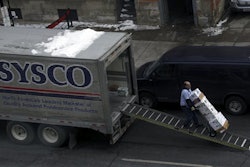WASHINGTON (NCBA) — The Environmental Protection Agency (EPA) hosted a public hearing on its proposed rule to reduce the 2014 renewable volume obligations under the Renewable Fuel Standard (RFS). The National Cattlemen’s Beef Association’s (NCBA) past president Steve Foglesong testified at the hearing. Foglesong is a cattle feeder and corn-grower from Astoria, Ill., where his family owns and operates Black Gold Ranch.
“I am a corn farmer, I just choose to feed it to cattle, it’s value added,” said Foglesong. “It’s not that different from the ethanol industry who takes corn to feed it into their plants and produce ethanol, dried distillers grains (DDGs), and carbon dioxide instead of beef. The process is identical, all but the RFS mandate, which gives the ethanol industry an advantage in purchasing corn. We’re not opposed to corn ethanol, but it’s time to look at reforming the RFS and let the market pick winners and losers instead of the government.”
EPA’s proposed rule would reduce the 2014 RFS volume obligations for conventional corn-based ethanol by 1.39 billion gallons. Today’s hearing is an opportunity for all stakeholders to share their view on the proposed rule.
“NCBA supports the EPA’s proposed rule as it’s a step in the right direction, but more still needs to be done to level the playing field for all users of corn,” said Foglesong. “There is still work to do and we will continue to work with Congress to bring reform to the RFS.”
During the 2002-2003 marketing year, the United States Department of Agriculture estimated that corn use for ethanol production accounted for 10 percent of the total U.S. corn usage. Today, roughly 42 percent of the corn crop goes into ethanol production to meet the RFS mandate. Over the past four years, the average cost to grain finish a market steer has increased by more than $200 per head.
“These costs are not sustainable for a segment of our industry that relies on corn,” said Foglesong. “Last year, when state governors were denied a waiver of the RFS in light of the worst drought in over 50 years, it became evident that the RFS needs to be fixed.”
Foglesong expressed his support of the EPA’s decision and urged stakeholders to work together to find long-term compromise on the RFS.
Former NCBA President Testifies on Renewable Fuels Standard
The EPA hosted a public hearing on its proposed rule to reduce the 2014 renewable volume obligations under the Renewable Fuel Standard. The National Cattlemen’s Beef Association’s (NCBA) past president, Steve Foglesong, testified at the hearing.
Dec 11, 2013
Latest in Operations
Sonair Accelerating Rollout of 3D Ultrasonic Sensor for Robots
September 17, 2025
Nvidia CEO Huang Says He's Disappointed by China Chip Curbs
September 17, 2025






















